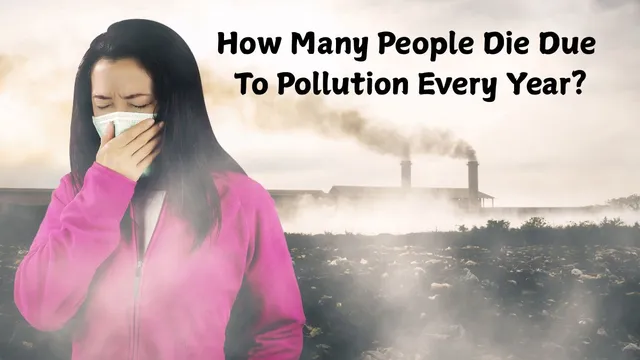- By Aditi Priya Singh
- Mon, 10 Nov 2025 07:28 PM (IST)
- Source:JND
Air pollution is one of the biggest environmental hazards to human health in the modern world. Every year, the air we breathe becomes more poisonous due to factors like fossil fuel combustion, industrial waste, vehicle emissions, and stubble burning. The World Health Organisation (WHO) recently released global health data showing that exposure to polluted air kills millions of people every year. This implies that the air we all breathe causes the deaths of multiple people every minute.
Serious respiratory and cardiac conditions are caused by fine particulate matter (PM2.5) and toxic gases like ozone and nitrogen dioxide. The situation is especially worrisome in developing nations like China and India, where urbanisation and industrialisation cause heavy pollution and poor air quality. We must realise the true dangers of air pollution and the actions required to breathe cleaner air as World Environment and Clean Air campaigns continue to raise awareness.
Global Death Rate Due to Air Pollution
Around 7 million deaths worldwide are attributed to air pollution each year, according to the WHO and Global Burden of Disease reports. These fatalities are brought on by prolonged exposure to contaminated air, which causes illnesses like lung cancer, heart attacks, strokes and persistent respiratory infections.
Recommended For You
* Ambient (outdoor) air pollution: Causes nearly 4.2 million deaths each year.
* Household air pollution: From indoor cooking and heating fuels causes around 2.8 million deaths annually.
This makes air pollution the fourth leading cause of premature death globally.
ALSO READ: Which Indian City Is Famously Known As The Land Of Nawabs And Why?
Countries Most Affected by Air Pollution
The highest number of pollution-related deaths occurs in South and East Asian countries. China and India are responsible for more than half of the deaths caused by air pollution worldwide. PM2.5 levels are frequently ten times higher than WHO limits in cities like Delhi, Beijing, and Lahore.
Burning biomass and inadequate waste management make the situation worse in Africa and Southeast Asia. Cities like Los Angeles, London, and Paris continue to have health problems due to industrial emissions and traffic, so even developed countries are not immune.
Health Effects of Air Pollution
Air pollution doesn’t just cause coughing or breathing problems — it has severe long-term effects on major organs.
1. Heart Diseases: Increases the risk of heart attack, stroke, and high blood pressure.
2. Lung Issues: Triggers asthma, bronchitis, and lung cancer.
3. Brain and Pregnancy: Linked to reduced cognitive function and low birth weight in babies.
4. Premature Deaths: Studies show that exposure to high PM2.5 levels can reduce life expectancy by 2–3 years.
What Can Be Done To Reduce Pollution?
To reduce air pollution-related deaths, global and local efforts must align.
* Promote electric vehicles and reduce fossil fuel use.
* Improve public transport and waste management.
* Encourage green cover and tree plantations.
* Switch to clean cooking fuels and renewable energy sources.
* Enforce strict emission control laws and raise awareness.





